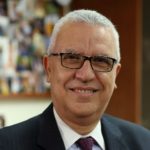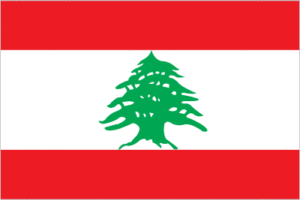A Baptist leader in Lebanon says a week of anti-government protests has done something unprecedented: unite a mosaic of various religious factions in agreement that things must change.

Nabil Costa
Nabil Costa, CEO of the Lebanese Society for Educational & Social Development, reported in an e-mail blast Oct. 22 that crowds across the country protesting economic disparity, high unemployment, unstable currency, massive public debt, government corruption, a lack of basic public services and other social ills are made up of citizens from all walks of life.
“No one knows for sure what will happen, but for the first time in the history of a country that has been plagued by sectarian divisions, what is clear is that Lebanese citizens of all religious confessions are uniting to demand the demission of the current political class in hopes of a brighter and more equitable future,” said Costa, who also serves as general secretary of Lebanon’s Association of Evangelical Schools.
The largest protest in 14 years began Oct. 17, when the government put forward a new tax proposal imposing taxes on a number of everyday services, including a popular phone messaging platform called WhatsApp.
The government has offered concessions including cutting the salaries of politicians by half, but protesters want wholesale change in their political system, starting with demands that Prime Minister Saad Hariri resign and replacing the existing 30-member cabinet made up of members of political factions.
Lebanon has served as a refuge for persecuted Christian and Muslim sects since the 7th century. The last census was in 1932, but Muslims make up about 55 percent of the population. The main branches of Islam practiced are Shia and Sunni.
 The 18 officially recognized religious groups include four Muslim sects, 12 Christian groups, the Druze and Judaism.
The 18 officially recognized religious groups include four Muslim sects, 12 Christian groups, the Druze and Judaism.
Baptists have been in Lebanon since 1893, beginning with the baptism of a young man visiting the United States who accepted Christ while attending Third Baptist Church in St. Louis, Missouri. Southern Baptist missionaries arrived in 1948, and the Lebanese Evangelical Baptist Convention formed in 1955.
Today the convention numbers 32 churches and 1,600 members, according to the Baptist World Alliance. The Lebanese Society for Educational & Social Development, founded in 1998, oversees Beirut Baptist School, Arab Baptist Theological Seminary and a Christian publishing house called Dar Manhal Al Hayat
Lebanon currently manages its religious diversity by allocating government jobs and appointments by religion. The president of the country must be a Maronite Christian, the prime minister must be a Sunni Muslim, and the speaker of the Parliament must be a Shiite Muslim. Each sectarian group has its own agenda, political culture and leaders.
Observers say the demonstrations have unified Lebanon’s various sects like never before, with Shia, Sunni, Christians and Druze protesting side-by-side.
“People are realizing that a Christian living in extreme poverty is no different from a Sunni or Shia living in extreme poverty,” one protestor told the BBC.
Costa said Baptists have an important role to play in Lebanon by “both advocating the cause of the suffering while also praying for those in authority.”
“No durable and lasting change will happen overnight, and it is important for us to avoid the temptation to grasp at ‘quick fix’ solutions that don’t take into account the complexities and challenges of our world,” Costa said. “We thank you for joining with us in this uncertain but opportune ‘kairos’ moment in which the Church can show the people the true leader that their hearts are longing for.”
